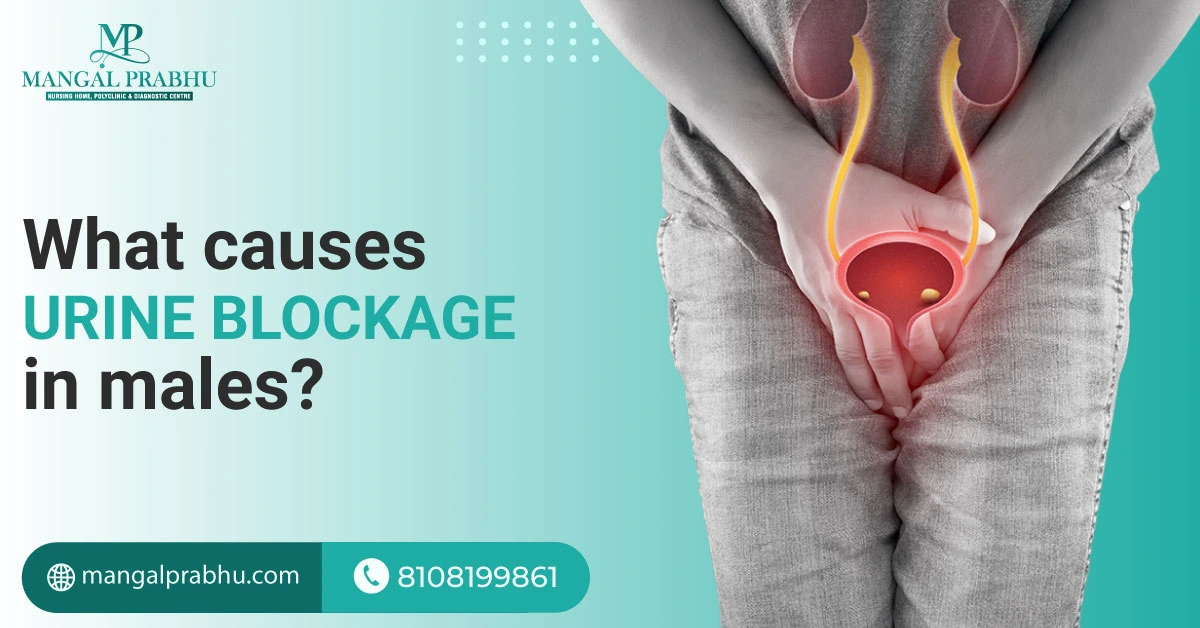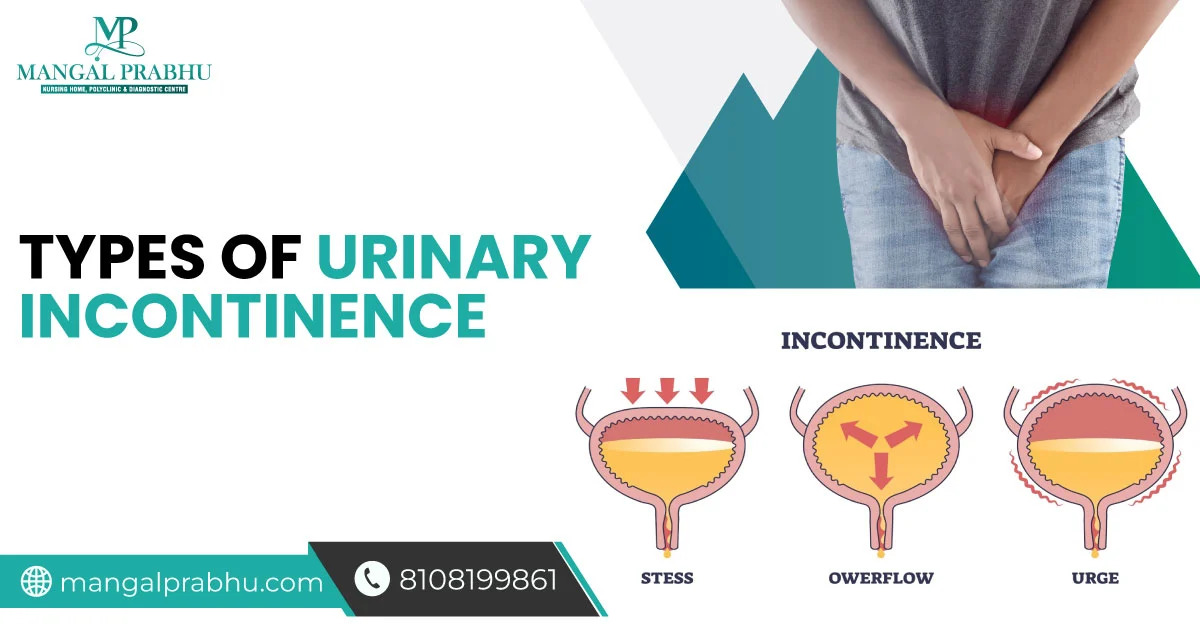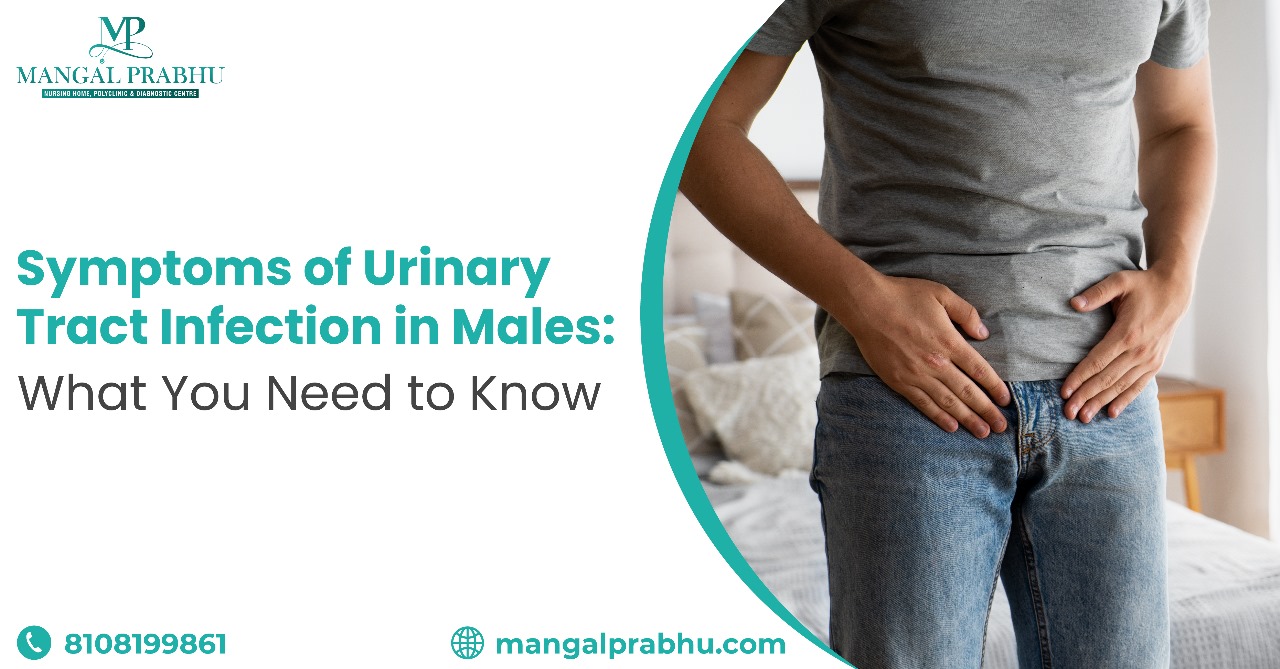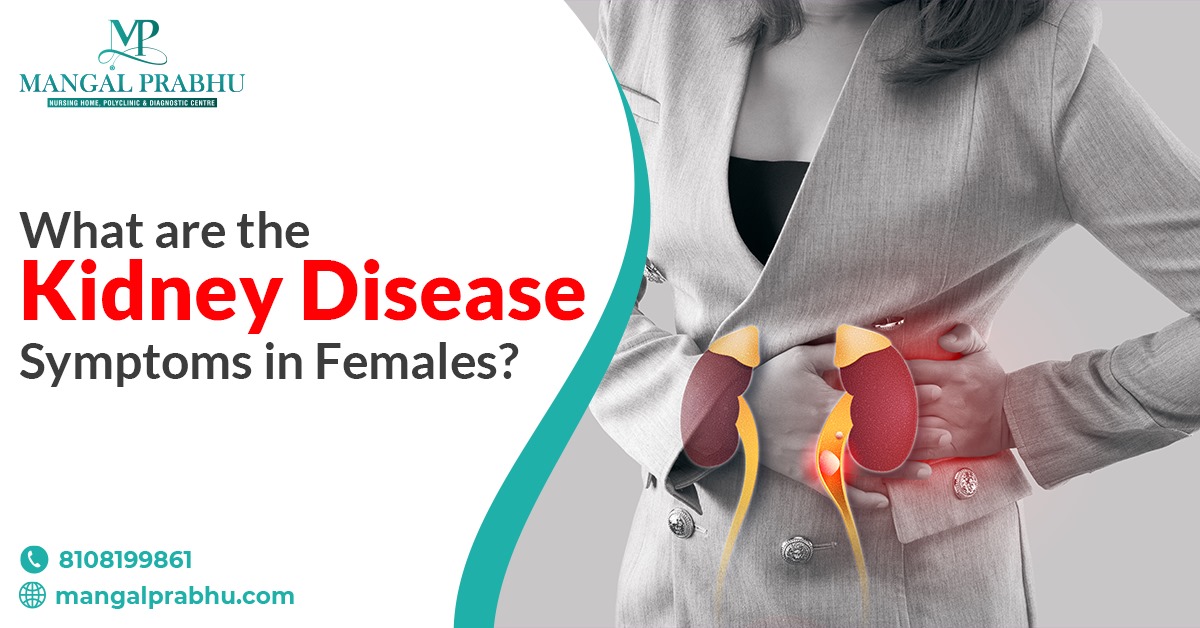
What is the First Sign of Kidney Problems?
Your kidneys filter waste and excess fluid from your bloodstream. If something goes wrong, you may not notice the symptoms immediately. Instead, the symptoms often crop up when the disease has reached an advanced stage. That’s why it’s important to keep in touch with a nephrologist in Navi Mumbai to ensure your kidneys are working optimally.
Although the only way to know if you have an existing kidney disease is through tests, certain symptoms can also indicate kidney issues. We have discussed a few in this post:
What is the First Sign of Kidney Problems
When your kidneys malfunction, fluid and waste accumulate in your body. Over time, you may start noticing unusual symptoms, the severity of which may vary depending on how much the disease has progressed. Here are a few common signs you’ll see initially.
1) Fatigue and Weakness
People with kidney diseases are likely to feel tired often. Weakness is also a common sign. This happens when impurities accumulate in your blood.
2) Swelling
If your kidneys do not filter your blood effectively, you might develop swelling in the hands, ankles, feet, and face. This occurs because of excess salt and fluid in your body.
3) Changes in Urination
Another common sign of kidney disease is a changed urination pattern. You might feel the urge to urinate more often, particularly at night. You might also notice foamy urine.
4) Blood in the Urine (hematuria)
It is also linked to kidney diseases. Ideally, your kidneys keep the blood cells in your body when creating urine. When they aren’t working well, these blood cells might get leaked into the urine, causing hematuria.
Other Early Indicators
Here are a few other signs that indicate kidney disease:
a) Persistent Back Pain
If you have dull, sharp, and persistent pain on either side of your lower back, it could be a sign of kidney disease. Sharp and severe pain that doesn’t get better with movement might indicate kidney stones.
b) High Blood Pressure
Your kidneys control your blood pressure. When they aren’t working optimally, your blood pressure might spike, which, in turn, might further worsen kidney function.
c) Unexplained Weight Loss
As toxins build up in your blood, patients experience nausea, loss of appetite, and vomiting, all of which contribute to weight loss.
If you have been losing too much weight without trying, and it’s accompanied by swelling, loss of appetite, and changes in the urination pattern, it’s worth checking with your doctor to rule out kidney diseases.
d) Shortness of Breath
Too much fluid accumulation in the lungs can lead to shortness of breath. It can also occur due to anemia.
When to See a Doctor
Identifying the early symptoms of kidney disease is crucial to managing the condition and preventing it from progressing to the advanced stage. Unfortunately, kidney diseases are often left undiagnosed as patients often mistake the symptoms for other common health issues. If you notice the above symptoms with excessive fatigue, extreme weight loss, and frequent urination with foamy texture and unusual odor, it’s time to schedule a visit to a nephrologist to discuss the most viable kidney disease treatment in Navi Mumbai.

What Causes Urine Blockage In Males?
An obstruction in any part of the man’s urinary tract can interrupt the normal urine flow. The blockage could be in the kidneys, which produce urine, or the urethra (responsible for releasing it). It’s important to see a urologist in Navi Mumbai if you suspect urine blockage, as an untreated obstruction can lead to uncomfortable symptoms, infection, and, in severe cases, kidney damage. The question is, what causes urine blockages in males? Let’s delve into some common reasons that might contribute.
What Causes Urine Blockage In Males?
1) Benign Prostatic Hyperplasia (BPH):
This is the most common cause of urine blockages in men. With age, the prostate gland that sits right beneath the bladder tends to get bigger. Its increased size can squeeze the urethra, affecting the urine flow. If your urinary obstruction is caused by BPH, you might also experience frequent urination, an inability to empty the bladder, and a weak or slow stream.
2) Kidney Stones:
These are hard mineral deposits that form in your kidneys and might travel down the ureters, causing an obstruction. These crystals can block the ureters (which carry urine to the bladder). The hallmark sign of kidney stones is debilitating pain in the back. Some people experience blood in the urine and nausea.
3) Urinary Tract Infections (UTIs):
UTI cases are more common in women, but men can also get this bacterial infection. It can block the urethra, disrupting the urine flow. If the blockage occurs due to UTI, you might notice cloudy urine, pain with a burning sensation while urinating, hematuria, and an uncontrollable urge to urinate.
4) Urethral Stricture:
Men who’ve had surgery or experienced a trauma that resulted in scar tissue formation in the urethra can also develop urine blockage. This happens due to the narrowing of the urethra due to scar tissue, inflammation, or an infection.
Symptoms and Diagnosis
Urinary obstruction can occur suddenly or gradually. Symptoms usually vary depending on the severity of the blockage. Here are some common symptoms people with a blocked urinary tract might experience:
- Difficulty starting to urinate
- Slow urine stream
- Frequent urge to urinate
- The feeling of unemptied bladder
- Pain during urination
- Blood in the urine
- Back pain
Treatment Options
Treatment of urinary obstruction in Navi Mumbai is determined based on what’s caused it. Here are a few options a urologist will discuss with you.
a) Medications:
Certain medications can help bring the prostate back to its normal size, although these may not always be effective. If you have a UTI, antibiotics can help clear the infection.
b) Surgical Interventions:
Surgery to widen the urethra may be necessary in case of urethral stricture. Surgery might also be needed in men with enlarged prostate or kidney stones that are too big to be removed naturally.
c) Lifestyle Changes:
A few lifestyle tips, such as limiting your caffeine and alcohol intake, drinking plenty of fluids, and peeing when you feel the urge to urinate, can help ensure optimal kidney function. See a urologist immediately if you experience a complete urinary tract obstruction with the inability to urinate.

What Happens When a Hydrocele Bursts?
Hydrocele is a common condition in newborns, affecting around 10% of male babies. It can also occur in adults. Although it might look serious, hydrocele disappears on its own and usually does not require treatment. However, seeing a urologist in Navi Mumbai is still advisable to rule out other serious issues that could have caused the swelling. Let’s learn more about this medical condition, its symptoms, and what happens when a hydrocele bursts.
What is a Hydrocele?
A hydrocele is a swollen scrotum (the pouch holding your testicles) caused by fluid accumulation. It can be caused by inflammation, infection, or any injury to the area. Most of the time, hydroceles are harmless and painless, although they can sometimes rupture and require medical intervention.
The most obvious symptom of hydrocele is painless swelling in the scrotum, which can make the scrotum feel heavier than usual. The doctor will conduct a physical exam to identify the cause of the swelling. They will ensure it’s not because of an inguinal hernia or an infection.
Possible Complications of a Burst Hydrocele
An underlying infection or excessive pressure on the swollen scrotum can sometimes lead to the sac rupturing, which can cause fluid leakage in the surrounding areas. This can cause symptoms like sudden throbbing pain in the scrotum and a softer scrotum after the sac bursts. There’s a risk of hemorrhage due to trauma, but that’s rare. If you suspect a ruptured hydrocele, seek immediate medical attention to prevent any life-threatening complications.
Treatment Options
1) Pain-Relief:
If there’s no sign of infection or any complication, your doctor will observe you. You can take over-the-counter pain-relief medication and use home remedies like cold compresses and keeping the scrotum elevated to minimize swelling.
2) Antibiotics:
If you develop an infection from a ruptured hydrocele, doctors may recommend a course of antibiotics to prevent the infection from spreading.
3) Surgical Options:
A minimally invasive procedure—needle aspiration—is used to remove the excess fluid. However, that offers temporary relief only. A more invasive surgery, called hydrocelectomy, is required if the sac bursts and does not heal or if the patient reports frequent ruptures and infection. This hydrocele treatment in Navi Mumbai is safe, although the recovery time can be longer (usually up to 2-3 weeks).
Preventive Measures
Hydrocele occurs due to injury, inflammation, or infection in the scrotum. You can follow preventive measures to prevent the fluid-filled sac from bursting. Here’s what may help:
a) Avoid Pressure:
Do not put any pressure or perform any strenuous physical activity that could cause trauma to the scrotum.
b) Get Treatment for Infections:
Infections can increase the risk of the sac bursting and lead to a widespread infection requiring immediate medical attention. Make sure you get immediate treatment for infection.
c) Watch Your Symptoms:
The warning signs of a burst hydrocele are pain and discomfort, as well as changes in the shape and size of the scrotum. See your doctor immediately if you experience pain, fever, chills, a discolored scrotum, or discharge. Early diagnosis and treatment are key to quick recovery, so get evaluated promptly if you notice the above signs.

Signs of Bladder Stones in Females
A combination of minerals can crystallize and form a mass in your bladder, leading to bladder stones. Some of these are small and often pass on their own through urine. Others, however, might require a surgical removal. Although it’s more common in older males, anyone, including women, can develop bladder stones.
The common signs are abdominal pain and difficulty urinating. We’ve researched the most common and less obvious yet possible warning signs of bladder stones. Let’s check out the symptoms and when to seek help from a urologist in Navi Mumbai.
Common Signs of Bladder Stones in Females
a) Painful Urination:
The most obvious sign of bladder stones in females is pain while urinating. This happens when the stone obstructs the flow of urine or irritates the bladder lining, making urination painful. The pain is exacerbated if the stones lead to an infection or inflammation in the bladder.
b) Frequent Urge to Urinate:
Stones block the urine flow, making it difficult to empty the bladder fully. This can lead to frequent urination or the urge to urinate more often than usual. The stone can also put pressure on the bladder, causing frequent urination.
c) Hematuria:
Hematuria, or blood in the urine, occurs when the stones in your bladder irritate the bladder lining, which might result in visible blood in your pee. This happens when the stones sit around for a prolonged period or grow in size.
d) Dark Urine:
Less fluid intake or the presence of blood in the urine can make it appear darker. Certain types of stone composition can also change the urine color.
Less Common Signs of Bladder Stones in Females
There are a few less obvious signs that indicate bladder stones. Although they don’t occur in every patient, it’s important to watch out for these symptoms and report them to your urologist.
A) Lower Abdominal Pain:
Bladder stones can cause abdominal pain, which can be mild or severe, depending on the size of the stone. In women, particularly, the pain might radiate to the pelvic floor muscles and the back.
B) Painful Intercourse:
In females, bladder stones can put pressure on the pelvic organs, leading to painful sexual intercourse.
C) Recurrent Urinary Tract Infections:
Bladder stones can lead to stagnant urine, in which the urine doesn’t leave your system because of the obstruction in its flow. This creates a perfect environment for bacteria to thrive, increasing your risk of catching urinary tract infections frequently.
D) Nausea and Vomiting:
If the stones have blocked a significant part of the bladder responsible for regulating urine flow, the patient might experience nausea and vomiting. That’s more common in women with UTI.
When to Seek Medical Help
Visit a urology hospital in Navi Mumbai if you experience persistent pain that gets intense in your lower abdomen. Prompt medical attention is necessary if the pain is accompanied by other bladder stone symptoms, including hematuria, difficulty peeing, high-grade fever, chills, and vomiting.
Bladder stones can grow if they remain undetected and untreated for a long time. Depending on the size and location of the stone, the urologist will either prescribe medication to pass it through urine or remove it surgically.

Types of Urinary Incontinence
Urinary incontinence is the unplanned loss of urine from the bladder. Various factors trigger it affecting all people. Expert treatment from a Urologist in Navi Mumbai usually resolves the condition in most cases. This article examines different types of urinary incontinence, their causes, symptoms, diagnosis and individualised treatment strategies that can offer respite from such distressful episodes.
Types of Urinary Incontinence
1) Stress Incontinence
One of the things that lead to stress incontinence is when you get physically involved in things like coughing and sneezing hence exerting force that goes to the bladder resulting in spillage; mainly found in girls.
2) Urge Incontinence
Conversely an urge incontinence condition comes about with a very high urgency followed by leakage, which can be associated with an instance of reflected bladder activity.
3) Overflow Incontinence
Overflow incontinence is the inability to completely empty your bladder during urination due to obstruction of urine passage each time.
4) Functional Incontinence
In the event that you have mobility problems for instance, you may experience what is referred to as functional incontinence mainly because of difficulties reaching the bathroom.
5) Mixed incontinence
A person has characteristics of both stress and urge incontinence. Many women have both types.
Causes, symptoms, and treatment options
Most frequently, stress incontinence results from giving birth or gaining weight leading to weakened pelvic muscles. A person may manifest signs like leaks when exercising or raising an object. Procedures like kegel exercises, pelvic floor physiotherapy, and support devices can ease this condition. People with urge incontinence usually suffer from either cystitis or hyperactive bladders. Signs of this disorder are frequent urgency in washing the vagina.
Behavior changes, medication, and nerve stimulation may help. Overflow incontinence may be due to an enlarged prostate gland in men. Symptoms are frequent dribbling. Treatment focuses on clearing blockages. Functional incontinence requires mobility aids and toileting assistance. Mixed incontinence requires managing multiple symptoms.
Diagnosis
Medical History, Physical Exams
To determine the probable type, the individual’s symptoms and medical history shall be looked at by a urologist in Navi Mumbai. The issues are examined on the bladder, urethra, and pelvic floor muscles.
Diagnostic Test Significance
Tests like bladder diaries, pad tests, and urine tests help clarify the diagnosis by measuring urine loss and checking for infections. Imaging scans show the bladder and organs. Urodynamics assesses bladder function using small tubes. Cystoscopy uses a thin camera to examine the bladder internally. Together these assist accurate diagnosis for correct treatment planning.
Treatment
Behavior Changes Medication, Devices, and Surgery.
Treating incontinence involves a customized plan by a urologist based on type and severity. Simple changes like limiting fluids before bedtime may help, along with pelvic floor exercises. Medications aim to relax or strengthen the bladder. Pessaries and catheters offer containment support. For severe cases, surgery restores bladder support or implants a sling or artificial urinary sphincter.
Customized Treatment Plans
The urologist will monitor the response and adjust treatment, which may involve a combination approach. Some need lifestyle modifications alone, while others benefit from medications, physiotherapy, or minor procedures in Navi Mumbai. Surgery is usually the last option. Following the plan helps manage symptoms long term for improved quality of life.
Conclusion
With the right understanding and treatment from an experienced urologist who do Urinary Incontinence Treatment in Navi Mumbai, incontinence need not control one’s life. Effective management is often possible with lifestyle changes, therapies, and modern options.

What is The Best Treatment for Bladder Leakage?
The feeling of urgency to urinate can be quite embarrassing, especially when you are in a public place. It often occurs in people diagnosed with urinary incontinence, a medical condition that makes it difficult for the patient to hold their urine.
It can be caused by pelvic floor diseases, during pregnancy and childbirth, and due to an enlarged prostate (to name a few). You must see a urologist in Navi Mumbai to pinpoint the exact cause of urinary incontinence and choose a treatment that suits your needs and health.
Causes and Risk Factors of Bladder Leakage
The causes can be temporary, such as pregnancy or a chronic medical condition. Sadly, the symptoms last until the root cause is treated. Here are the short-term and long-term causes of bladder leakage:
- Pregnancy: The weight of the baby plus your uterus pressing your bladder down can make it hard to hold urine, thus causing bladder leakage. The symptoms resolve after delivery.
- Urinary Tract Infection: A UTI is an infection of the bladder and kidneys. Your doctor will prescribe antibacterial medication to treat it.
- Diabetes: Diabetes increases your urine frequency, increasing the risk of bladder leakage.
- Menopause: Your pelvic floor muscles get loose and weak during menopause. This affects your bladder function and can lead to urinary incontinence.
Symptoms of Bladder Leakage
The common symptom of bladder leakage or urinary incontinence is the uncontrollable urge to urinate and the leakage of urine (in small amounts or large volumes). This can be occasional or regular, depending on the cause. You might notice the leakage when coughing, sneezing, laughing, or when you are engaged in physical exercises or sports.
Treatment Options for Bladder Leakage
Treatment for urinary incontinence depends on the underlying cause. Your doctor might recommend a combination of treatments to relieve your symptoms.
1) Lifestyle Changes
Sometimes, incontinence occurs because of certain lifestyle habits. For instance, drinking certain beverages in larger than recommended dosages or taking certain medications can cause bladder leakage. Changing these habits can help relieve your symptoms. Moreover, practicing pelvic floor muscle exercises can strengthen your pelvis and improve bladder function.
2) Medications
Medication helps relax your bladder and improves its ability to hold more urine. It also helps empty your bladder at once, so you need fewer trips to the washroom. Anticholinergics are commonly used to reduce urge incontinence. Other medications that may help are alpha-blockers, topical estrogen, and mirabegron.
3) Surgery
If the noninvasive urinary incontinence treatment in Navi Mumbai fails to deliver results, you might require a surgical procedure. A sling procedure involves placing a mesh under your urethra.
It prevents urine leakage due to stress incontinence. If the incontinence is caused by pelvic organ prolapse, surgery to fix the prolapse plus a sling procedure is required to treat the incontinence.
Conclusion
Urinary incontinence occurs because of an existing medical condition or an underlying issue that makes your bladder too weak to hold urine. Talk to your urologist about different treatment options. They will help you identify the best procedure for urinary incontinence based on the underlying cause and your health.

Understanding Female Urethral Stricture
The urethra is an essential part of the body for passing urine outside. However, sometimes, tranquil flow may obstructed due to sudden blockades or a stricture. Though less common in women, this formidable foe poses a challenge to the natural passage of urine, sending ripples of discomfort and frustration. However, an individual must consider the best urethral stricture treatment in Navi Mumbai from Mangal Prabhu Hospital to quickly get through all the difficulties in urination and other associated complications.
Causes of Female Urethral Stricture
A) Common causes
While childbirth can contribute to female urethral stricture, it’s not the only major cause of urethral stricture in women. Surgeries, infections like UTI, STI, trauma, and even radiation therapy can leave their mark, leading to scar tissue and a narrowed urethra. And unlike men, where strictures are more common, FUS often gets overlooked in women, leaving them suffering in silence. Other causes, including falls, accidents, and other injuries, can damage the delicate tissues of the urethra, laying the groundwork for future stricture development. And for cancer survivors who’ve undergone radiation therapy in the pelvic region, the potential for FUS becomes an additional concern, a hidden consequence of their fight for health.
B) Risk factors
- Previous Urethral Surgery: Past procedures may leave a lasting imprint, predisposing individuals to future strictures.
- Chronic Inflammation or Infection: Those battling recurrent UTIs or chronic inflammatory conditions may find themselves on a collision course with urethral strictures.
Also Read: What Does a Urologist Do?
Symptoms and Diagnosis
a) Signs and symptoms
- Initiating Urinary discomfort and difficulty: Strictures can make it challenging to kickstart urination.
- Stream Struggles: A gentle stream reduced to a mere trickle, a narrowed urethra can disrupt the flow and cause a weak and intermittent urine stream.
- Burning Sensation: an individual may feel the fiery Sensation of passing urine, signalling irritation along the urethral pathway.
- UTIs: Recurring signs of urinary tract infections are often triggered by the stagnation caused by strictures.
- Urinary Retention: Like a clogged drain, complete blockage leads to urinary retention or a harbinger of discomfort.
b) Diagnostic tests and procedures
- Uroflowmetry: it helps in monitoring the rate and volume of urine flow to uncover obstructions.
- Cystoscopy: It helps in diagnosing the depth of the urethral and visualizing strictures and hidden abnormalities.
- Urethral Dilation: A gentle stretch to widen the narrow path to relieve symptoms.
Treatment Options
i) Non-surgical approaches
- Stretching strategies or urethral dilation: A Urologist in Navi Mumbai uses a unique instrument for gradual dilation to clear the path and restore the flow.
- Medication: It helps in fighting inflammation and infections head-on, empowering the body’s defences to ease symptoms.
- Self-Care: It helps empower patients with the skills to navigate the narrow passage, ensuring regular clearance and comfort.
ii) Surgical interventions
Surgical interventions like urethroplasty, urethral stent placement and laser therapy help in removing issues and offering better passage of urine.
Conclusion
Female urethral stricture is a rare yet trouble-making issue; thus, gaining knowledge and consulting with the best doctor may help to eliminate the risk. So, it would be best for an individual to consult the best urologist at Mangal Prabhu Hospital to get the best possible treatment without any hassle.

What Does a Urologist Do?
What is a Urologist?
A urologist is a healthcare professional specializing in the urinary tract system of men, women, and children. They also treat conditions related to reproductive health, such as the inability to keep and maintain an erection. Your reproductive organs and the urinary tract are located close to each other and are thus linked to the urinary system. Your urinary tract includes the parts that are responsible for eliminating waste from your body. This includes your kidneys, bladder, urethra, and ureters. Here’s all you should know about a urologist in Navi Mumbai and their role.
What Conditions Do Urologists Treat?
In the ancient period, patients were recommended a urine test to determine the cause of the issue in the urinary tract. The treatment was planned based on these reports. Today, urology has become a different field of medicine, which comprises several testing procedures and treatment options. The main role of a urologist is to identify and treat conditions related to your urinary tract, including common and rare diseases. Here’s what they treat:
- Urinary incontinence (inability to hold pee or sudden urge to urinate)
- Enlarged prostate
- UTIs (urinary tract infection)
- Cloudy urine, blood in the urine, and pain during urination
- Erectile dysfunction
- Kidney stones
- Cancer of the urinary tract system (bladder cancer, kidney cancer, or cancer in any part of your urinary system)
Urologists may or may not practice surgeries, but they are all trained to perform surgeries as and when needed. Their area of specialization includes kidney transplantation, male infertility, oncology, pediatric urology, and so on.
Also Read: How Stones Are Formed In Kidney?
Diagnosis and Treatment Methods
Depending on your symptoms, the urologist might conduct a physical examination or recommend other tests to diagnose the underlying cause of the disease. Here are a few common tests a urologist recommends.
A) Physical Examination:
The urologist performs a physical examination, which might vary for men and women. For men, the urologist conducts a rectal exam, and for women, a pelvic test.
B) Urinalysis:
The doctor will collect your urine or semen sample to diagnose infections and other medical illnesses.
C) Imaging Tests:
Based on your symptoms, the doctor will order CT scans, ultrasound, or an MRI for a proper diagnosis. Cystoscopy is another common procedure that’s used to diagnose the enlarged prostate and other urology issues.
Treatment depends on the diagnosis. The urologist can perform nephrectomy (kidney removal), prostate biopsy, vasectomy, and so on.
Benefits of Seeing a Urologist
Visiting a urology hospital in Navi Mumbai can help you treat infections and other urinary tract issues before it advances. Certain conditions like frequent UTIs need proper treatment. The same goes for chronic health issues, like cancer of the urinary tract system or enlarged prostate.
Your doctor may not necessarily recommend an invasive procedure unless it’s a serious issue. Medication, physical therapies, and lifestyle changes are often enough to treat general urology issues.
Conclusion
If you notice any unusual symptoms related to your urinary tract system, see a urologist immediately. They will recommend the tests to diagnose the problem and recommend a suitable treatment based on your age, health condition, and goals.

Symptoms of Urinary Tract Infection in Males: What You Need to Know
You may have heard of urinary tract infections (UTIs) in women. But do you know men can also get UTIs? The urinary tract consists of the parts that are responsible for producing the urine and letting it out of your body. In men, these parts include the kidneys, bladder, ureters, and urethra. UTI occurs when bacteria from your skin or the rectum reach any part of the urinary tract and multiply. The bacteria can grow in your kidneys, bladder, or the tubes that carry urine from your kidneys to your bladder. A male urologist in Navi Mumbai can detect UTIs in men and recommend the best antibiotics to treat the infection.
Signs and Symptoms of UTI in Men
Doctors classify the urinary tract infection into two types—upper tract and lower tract. Upper-tract infection occurs when bacterial growth starts in the kidneys and ureters, while the lower tract covers your prostate, urethra, and bladder. Here are a few common symptoms of UTI in men:
- Pain while urinating accompanied by a burning sensation
- Heaviness in your lower abdomen
- Blood in the urine
- Inability to hold pee
- A sudden urge to urinate
- It feels like your bladder does not empty despite urinating frequently
If the condition worsens, you might experience additional symptoms, like fever, chills, and fatigue. The most common cause of UTI is the bacteria E. coli, which transfers to your bladder through the urethra. Certain medical conditions, like diabetes, kidney stones, a history of kidney disease, and fetal incontinence can put men at an increased risk of UTI.
Also Read: How Do A Woman Get An Urinary Tract Infection?
Diagnosis and Treatment for UTIs in Men
You must see a specialist in a urology hospital in Navi Mumbai to get an accurate diagnosis. The healthcare provider will ask about your medical history and might also collect your urine sample to detect the signs of bacterial infection and white blood cells. In some cases, the doctor recommends an ultrasound to ensure your urinary tract is functioning well.
Treatment for UTIs
UTIs are treatable and you will most likely feel better after the antibiotic course that your doctor recommends. They will choose antibiotics based on your symptoms and the affected areas in your urinary tract. It’s important to drink enough water. This will help the bacteria flush away through urine. If the bacteria has infected your lower urinary tract, you may have to take antibiotics for 1-2 weeks. If it’s spread beyond that, the course will last for a few weeks and you may have to follow up with the doctor regularly.
Prevention Tips
You can take steps to prevent bacteria from reaching your urinary tract. Here’s what will help.
- Do not hold your pee
- Drink enough fluids, especially if you work in hot weather
- Clean your genitals regularly
Urinary tract infections are not as common in men as in women, but they can occur and are treatable. The above tips will help you reduce the risk of UTI. see a urologist immediately if you notice any signs of UTI.

What are the Kidney Disease Symptoms in Females?
Kidney disease or kidney failure occurs when your kidney stops functioning. It’s usually the gradual loss of normal function, which results in its inability to filter waste from your blood. Kidney disease can be a life-threatening condition, as it can result in the excess buildup of electrolytes and waste in your blood.
If you experience a problem with urination, see a kidney specialist/nephrologist in Navi Mumbai to rule out the possibility of kidney failure. Your healthcare provider might recommend medication to slow down the damage, but eventually, you will need dialysis or a kidney transplant.
Symptoms of Kidney Disease
Kidney disease develops slowly in men and women. The symptoms usually don’t appear until it has reached an advanced stage. Based on the severity of the condition, here are some common symptoms that women diagnosed with kidney disease might experience.
- Nausea and vomiting
- Swollen ankles and feet
- Dry skin
- Hypertension
- Shortness of breath and chest pain if the excess fluid accumulates in your chest
- Frequent urination
- Insomnia
- Feeling dizzy
- Inability to concentrate or think clearly
- Brownish or reddish urine
- Bubbly urine
As mentioned previously, it’s advisable to see a doctor immediately if you notice any change in the pattern of urination, blood pressure, and swelling in the ankle. Kidney diseases do not produce severe symptoms unless the damage has reached the irreversible stage.
Also Read: How Stones Are Formed In Kidney?
Diagnosis of Kidney Disease
Chronic kidney disease can be diagnosed with a routine blood and urine test. The test is recommended for people with diabetes, hypertension, kidney injury, cardiovascular disease, and others who are at increased risk of developing kidney failure. The test is used to measure the level of waste product accumulated in your blood, called creatinine. A healthy kidney is capable of filtering up to 90ml/min. So, if the rate falls below that, you might be suffering from a kidney disease.
The doctor might also recommend a urine test, which helps evaluate the level of creatinine in your urine. In some cases, the doctor might recommend an ultrasound or an MRI to get a clear picture of the kidneys and detect any blockages. They might also conduct a biopsy where a small tissue from your kidney is extracted and checked under a microscope to determine the level of damage.
Treatment and Prevention of Kidney Disease
There’s no permanent cure for kidney disease, but a few steps can ensure your kidneys stay healthy.
- Manage your blood glucose levels if you are a diabetes patient
- Manage your blood pressure
- Do not take any medication that could worsen your kidney function
- Maintain your weight
- Follow a healthy lifestyle
- Avoid smoking
Conclusion
Kidney dialysis is an effective kidney disease treatment in Navi Mumbai. It’s recommended when you have reached the last stage of kidney disease and the last resort is to either get a kidney transplant or dialysis to save yourself. It removes excess waste from your body through a catheter. If that doesn’t work, your doctor might have to perform a kidney transplant to replace your kidney with the donor’s kidney.
